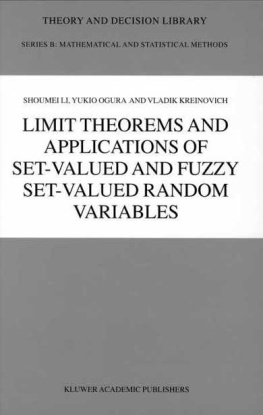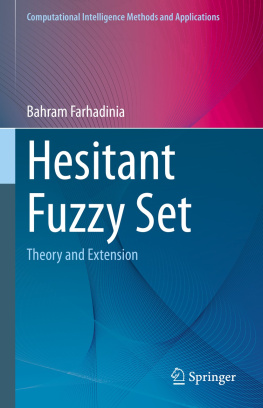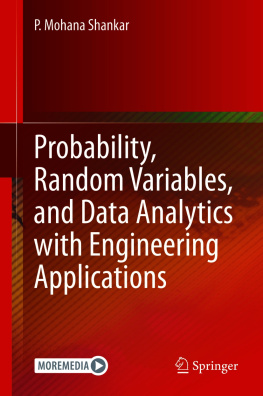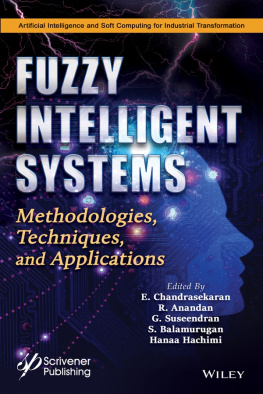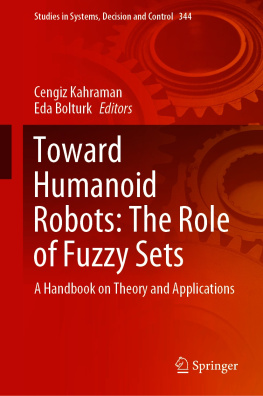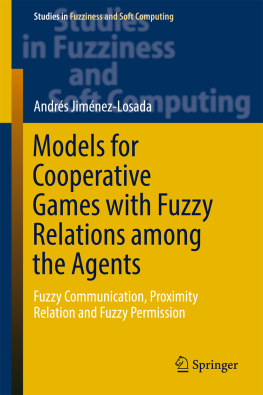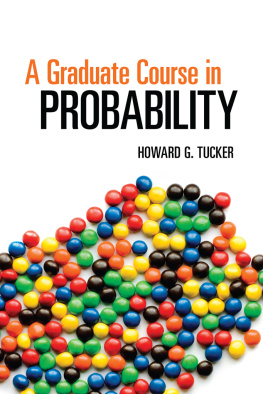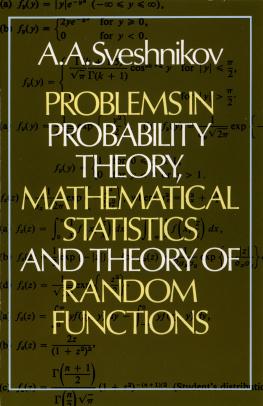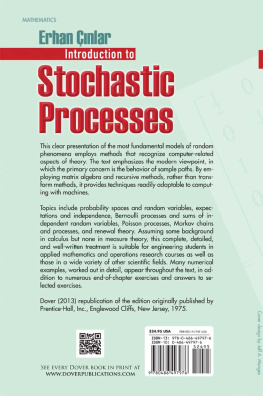LIMIT THEOREMS AND APPLICATIONS OF SET-VALUED AND
FUZZY SET-VALUED RANDOM VARIABLES
THEORY AND DECISION LIBRARY
General Editors: W. Leinfellner (Vienna) and G. Eberlein (Munich)
Series A: Philosophy and Methodology of the Social Sciences
Series B: Mathematical and Statistical Methods
Series C: Game Theory, Mathematical Programming and Operations Research
SERIES B: MATHEMATICAL AND STATISTICAL METHODS
VOLUME 43
Editor: H. J. Skala (Paderborn); Assistant Editor: M. Kraft (Paderhorn): Editorial Board: J. Aczel (Waterloo, Ont.), G. Bamberg (Augsburg), H. Drygas (Kassel), W. Eichhorn (Karlsruhe), P. Fishburn (Murray Hill, N.J.), D. Fraser (Toronto). W. Janko (Vienna), P. de Jong (Vancouver), T. Kariya (Tokyo), M. Machina (La Jolla, Calif.), A. Rapoport (Toronto), M. Richter (Kaiserslautern), B. K. Sinha (Cattonsville, Md.), D. A. Sprott (Waterloo, Ont.), P. Suppes (Stanford, Calif.), H. Theil (St. Augustine, Fla.), E. Trillas (Madrid), L. A. Zadeh (Berkeley, Calif.).
Scope: The series focuses on the application of methods and ideas of logic, mathematics and statistics to the social sciences. In particular, formal treatment of social phenomena, the analysis of decision making, information theory and problems of inference will he central themes of this part of the library. Besides theoretical results, empirical investigations and the testing of theoretical models of real world problems will be subjects of interest. In addition to emphasizing interdisciplinary communication, the series will seek to support the rapid dissemination of recent results.
The titles published in this series are listed at the end of this volume.
LIMIT THEOREMS AND
APPLICATIONS OF SET VALUED
AND FUZZY SET VALUED
RANDOM VARIABLES
by
SHOUMEI LI
Beijing Polytechnic University, Beijing, The Peoples Republic of China
YUKIO OGURA
Saga University, Saga, Japan
and
VLADIK KREINOVICH
University of Texas El Paso, El Paso, U.S.A.




Contents
Part I Limit Theorems of Set-Valued and Fuzzy SetValued Random Variables
1 1
Part II Practical Applications of Set-Valued Random Variables
Preface
After the pioneering works by Robbins (1944, 1945) and Choquet (1955), the notation of a set-valued random variable (called a random closed set in literatures) was systematically introduced by Kendall (1974) and Matheron (1975). It is well known that the theory of set-valued random variables is a natural extension of that of general real-valued random variables or random vectors. However, owing to the topological structure of the space of closed sets and special features of set-theoretic operations (cf. Beer [27]), set-valued random variables have many special properties. This gives new meanings for the classical probability theory. As a result of the development in this area in the past more than 30 years, the theory of set-valued random variables with many applications has become one of new and active branches in probability theory.
In practice also, we are often faced with random experiments whose outcomes are not numbers but are expressed in inexact linguistic terms. For example, consider a group of individuals chosen at random who are questioned about the weather in a particular city on a particular winter day. The resulting data of this random experiment would be linguistic terms such as `cold', `more or less cold', `very cold', `extremely cold', which can be described by fuzzy sets, introduced by Zadeh in 1965 in his paper [234], rather than by a single real number or subsets of real numbers. In the view of mathematics, a fuzzy set can be completely described by its membership function, i.e., a function from a discourse to [0,1]. A natural question which arises with reference to this example is that of what is the average opinion about the weather in that particular city on a particular day? A possible way of handling `data' like this is using the concepts of fuzzy set-valued random variable (or functionvalued random variables) and its expectation, introduced by Puri and Ralescu in 1986. They are the natural extension of the related concepts for set-valued random variables.
Limit theory plays a very important role, with many important applications in probability theory. In the past 30 years there were many important works for set-valued and fuzzy set-valued random variables such as strong laws of large numbers (see, e.g., Artstein and Vitale (1975), Klement el. (1986)), central limit theorems (see, e.g., Gine, Hahn and Zinn (1983); Proske and Puri (2001)) and convergence theorems of martingales (see, e.g., Hiai and Umegaki (1977); Hess (1991); Papageorgiou (1995); Li and Ogura (1998, 1999, 2001)), with many practical applications such as in media, imaging, and data processing. We have felt for a few years that these materials with our understanding and some research could usefully be collected together and organized into a coherent body to serve the needs of both readers who are working on the theory of set-valued and fuzzy set-valued random variables, and who are working in the different application areas.
The aim of this book is to present a unified theory of limit theorems for set-valued random variables and fuzzy set-valued random variables, as well as providing the way in which the theory is used in practical problems. We divide this book into two parts. Part I (Chapters 1-7) is for limit theory and Part II (Chapters 8-10) is for the applications.
The book begins with the introduction of the basic tools and well known results about hyperspaces and set-valued random variables. We briefly introduce the basic properties of Hausdorff metric and show the embedding theorem. We then give some notions of convergences, especially Hausdorff convergence and Kuratowski-Mosco convergence, in hyperspaces. We also give the definition of set-valued random variables and discuss its equivalence to some other definitions as well as their properties. The notion of selection which is indispensable in the following Chapters is also introduced in this Chapter 1.
In Chapter 2 we firstly introduce the Aumann integral and discuss its properties, and then we give the concept of conditional expectation provided by Hiai and Umegaki in 1977. We prove the generalized Futou's lemma and Lebesgue's dominated convergence theorem for sequences of set-valued random variables. Finally, we give some results on set-valued measures.
Chapter 3 is for the strong law of large numbers. Firstly, we discuss it for compact convex set-valued random variables in the Hausdorff metric and then obtain the results for closed valued ones in the KuratowskiMosco sense. We then give the central limit theorem for set-valued random variables in the Hausdorff metric.

